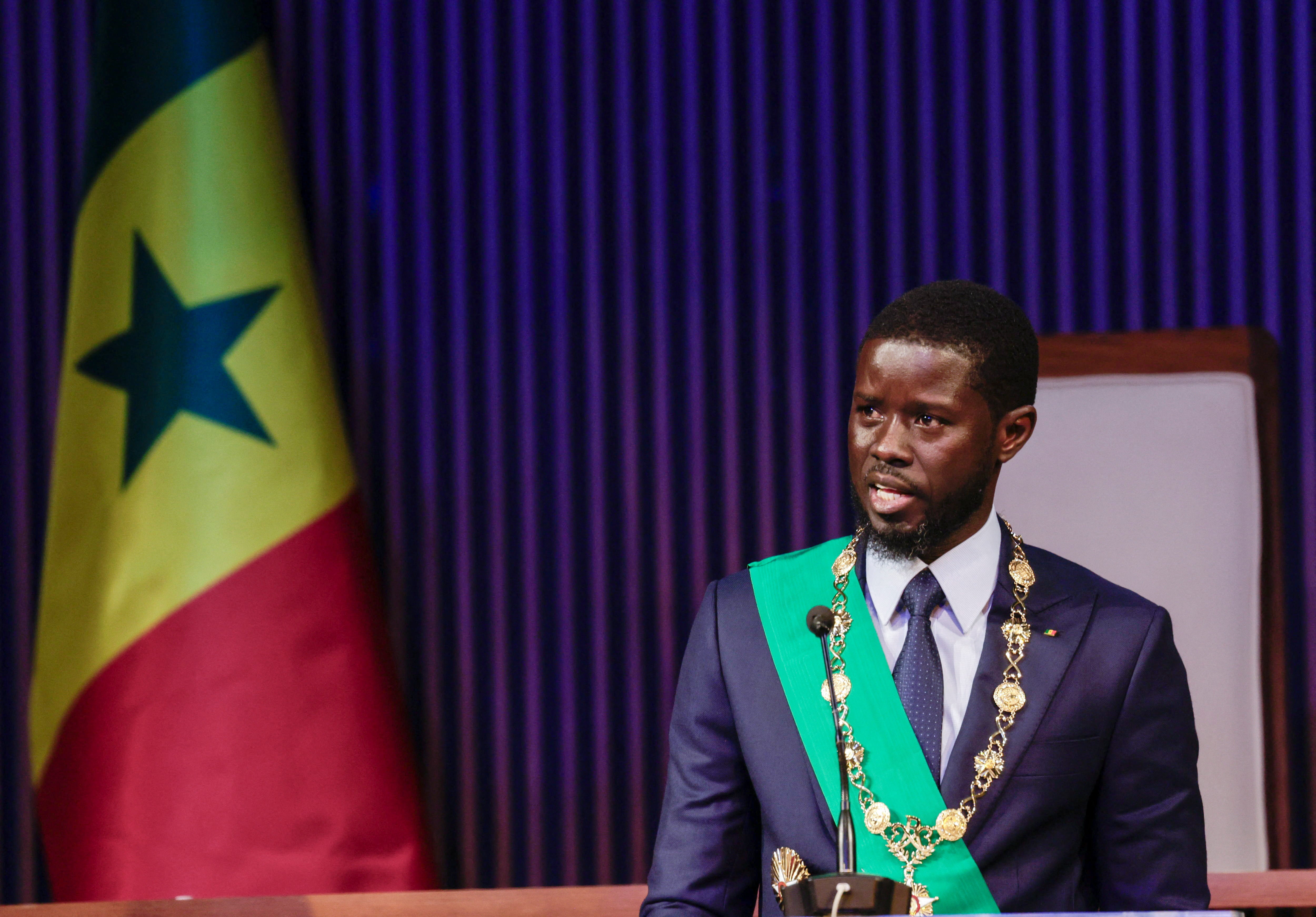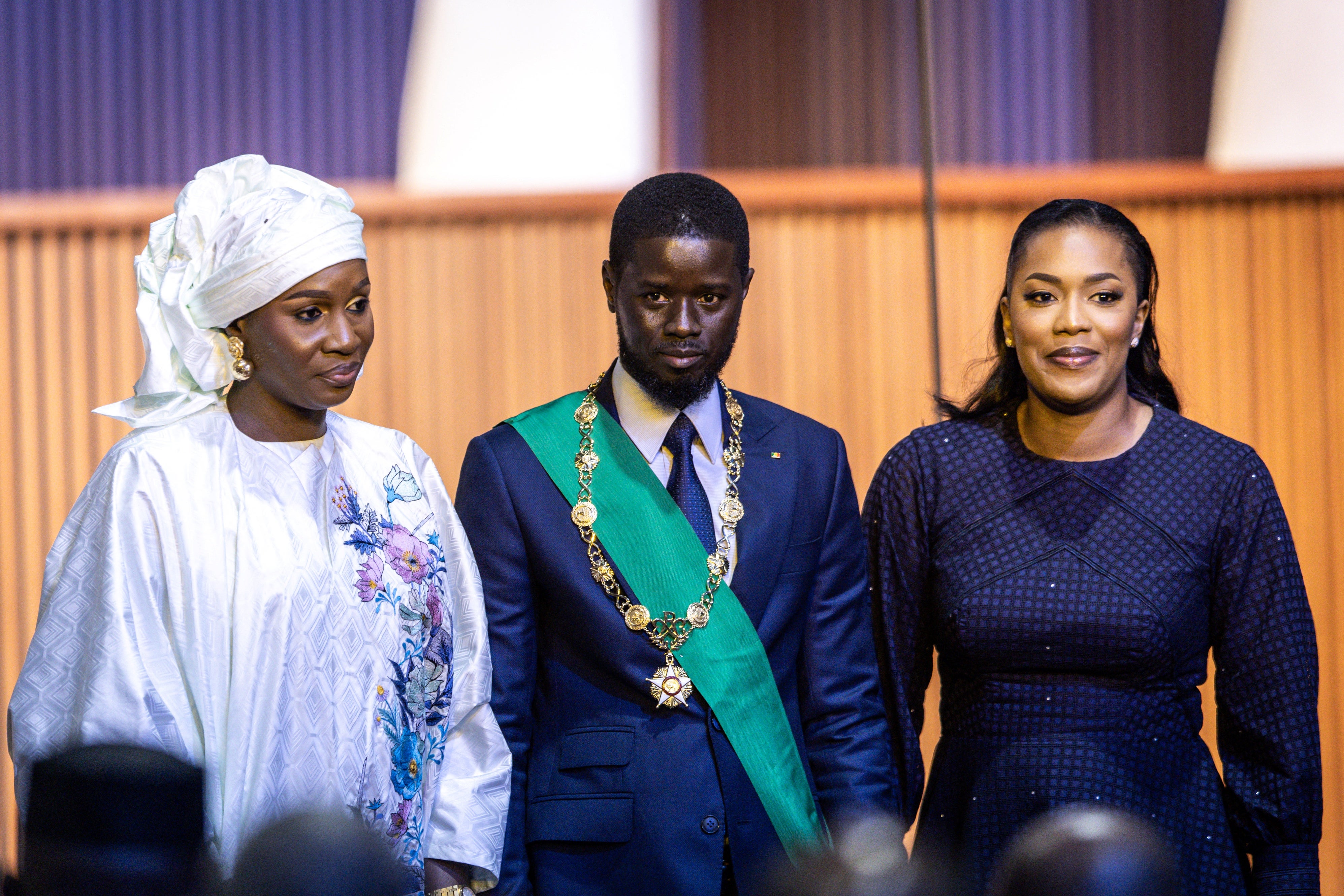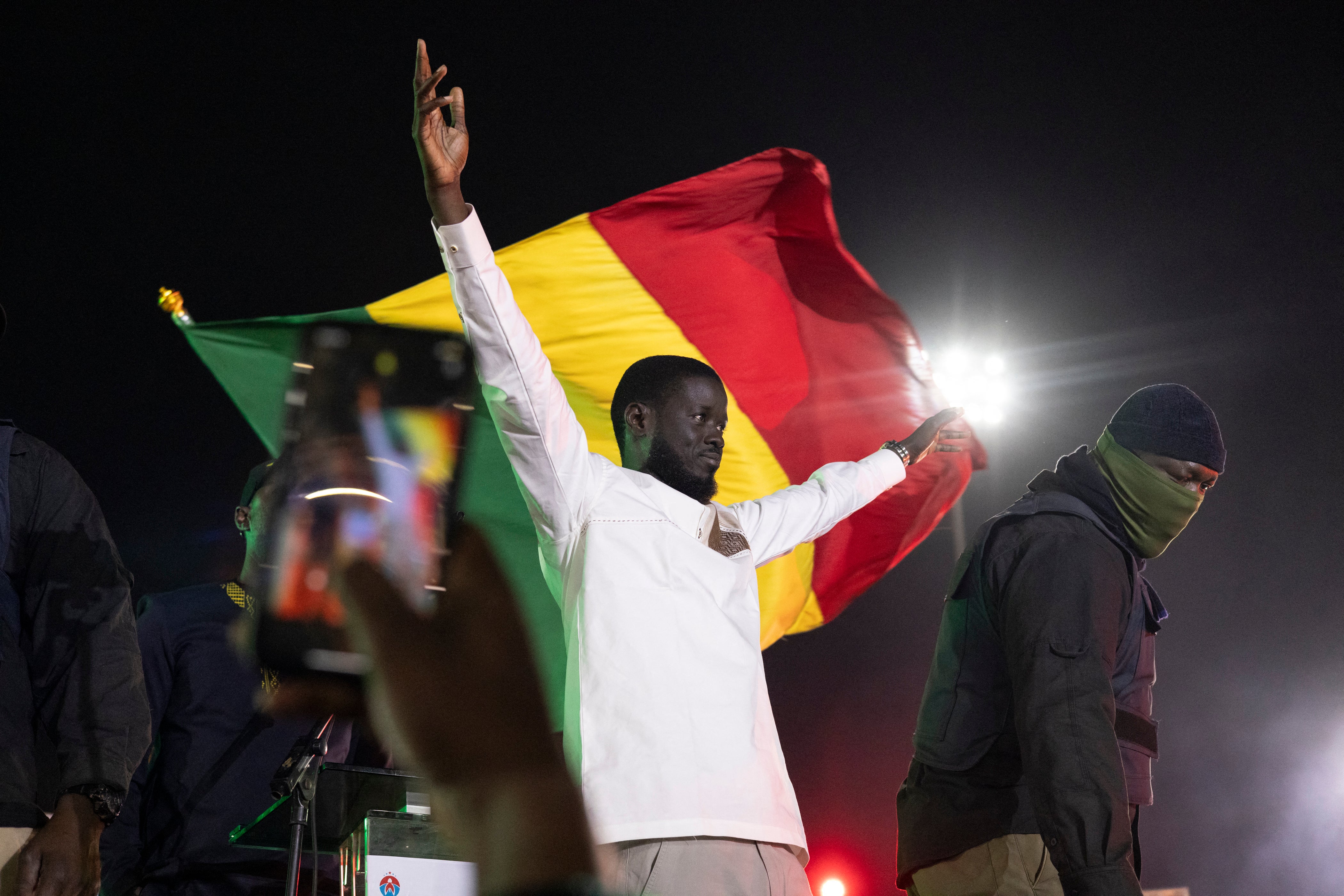Senegal swears in new president days after his release from prison
Bassirou Diomaye Faye has risen from prison to palace in recent weeks, promising ‘a country of hope’

Your support helps us to tell the story
From reproductive rights to climate change to Big Tech, The Independent is on the ground when the story is developing. Whether it's investigating the financials of Elon Musk's pro-Trump PAC or producing our latest documentary, 'The A Word', which shines a light on the American women fighting for reproductive rights, we know how important it is to parse out the facts from the messaging.
At such a critical moment in US history, we need reporters on the ground. Your donation allows us to keep sending journalists to speak to both sides of the story.
The Independent is trusted by Americans across the entire political spectrum. And unlike many other quality news outlets, we choose not to lock Americans out of our reporting and analysis with paywalls. We believe quality journalism should be available to everyone, paid for by those who can afford it.
Your support makes all the difference.Senegal inaugurated Bassirou Diomaye Faye as its youngest-ever president on Tuesday, days after he was released from jail where he had been held as a political prisoner.
The 44-year-old former tax inspector pledged to clean up corruption and help the country’s unemployed youth as he was sworn in at a ceremony attended by his two wives.
“The results of the election showed a profound desire for change,” he said. “Senegal will be a country of hope, at peace, with an independent justice system and a stronger democracy.”
Faye was released from prison less than two weeks before the 24 March election following a political amnesty announced by outgoing president Macky Sall. It is his first time in any elected office.
The smooth transition was a welcome boost after three years of turmoil in Senegal that had raised concern about democratic backsliding in the coup-prone region of west Africa, where juntas have seized power and cut ties with traditional Western allies in favour of Russia.

Faye’s imprisonment had prompted widespread unrest. Rights groups said dozens were killed in protests and about 1,000 were jailed.
A practising Muslim from a small town, Faye has two wives. Ahead of the election, he released a declaration of his assets to show transparency and called on other candidates to do the same. It listed a home in Dakar and land outside the capital and in his hometown. His bank accounts totalled roughly $6,600.
His government faces a major struggle in unifying a nation in which the unemployment rate is close to 20 per cent, and in reforming its politics.
“I think the first challenge is the formation of his [Faye’s] government,” said Alioune Tine, founder of the Senegalese think tank, Afrikajom Center. “This will be the first concrete message he sends to the Senegalese people. The size, diversity and profiles will be analysed with a fine-tooth comb, to see if they meet the demand for a break with the past.”

The new president first emerged when his mentor Ousmane Sonko, a popular opposition figure who came third in the previous election in 2019, named him to run in his place after being barred from the election for a prior conviction. While Sonko’s future in the new administration is unclear, he is expected to have a prominent role.
Faye was arrested for alleged defamation last year, while Sonko faced a number of charges, including a prolonged legal battle that started when he was accused of rape in 2021. He was acquitted of the rape charges but was convicted of corrupting youth and sentenced to two years in prison last summer. Sonko’s supporters say his legal troubles were part of a government effort to derail his candidacy.
Associated Press and Reuters contributed to this report